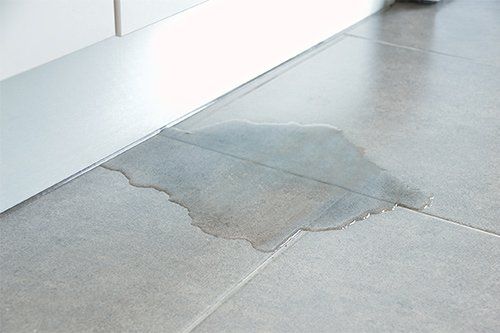Detailing the Six Most Common Causes of Home Water Leaks
Detailing the Six Most Common Causes of Home Water Leaks
Blog Article
Almost everyone will have his or her own conception in relation to Top Causes of Home Water Leaks.

Leakages not just cause waste of water but can also create unnecessary damages to your residence as well as advertise undesirable organic growth. Sadly, water leaks might go unnoticed given that the majority of the pipework in our house is hidden. By looking and also comprehending for everyday circumstances that cause leakages, you can secure your home from future leakages as well as unneeded damage. Today, we will certainly take a look at 6 leakage causes that might be causing your pipelines to trickle.
Encroaching roots
Many water leaks start outside your house as opposed to inside it. If you discover a sudden decrease in water stress, claim in your faucet, require time to go out as well as examine your yard. You could discover damp patches or sinkholes in your backyard, which may mean that tree roots are attacking water lines triggering water to permeate out. You can have your plumber check for breach, particularly if you have trees or shrubs near your property.
Corroded water supply
As time goes by, your plumbing system ages and rust such as rust may begin gnawing the pipelines. This might be the reason for staining or warping on your pipes. This asks for an inspection with your plumber right away. If our plumbing system is old, consider replacing the pipes given that they are at a higher danger of rust than the more recent versions.
Defective Pipe Joints
Pipe joints can weaken over time, resulting in water leaks. If you have loud pipes that make ticking or banging noises, especially when the warm water is turned on, your pipe joints are possibly under a great deal of stress.
Instantaneous temperature changes.
Severe temperature level modifications in our pipes can cause them to expand and also get all of a sudden. This growth and contraction might create splits in the pipelines, particularly if the temperature are below freezing. It would be best if you watched on how your plumbing functions. The presence of the previously mentioned conditions often indicates a high threat.
Poor Water Connectors
At times, a leakage can be caused by loosened hoses and also pipes that provide your devices. Usually, moving is what creates the loose water Links. You might locate in the case of a washing equipment, a hose pipe might spring a leak because of shaking throughout the spin cycle. In case of a water links leak, you might notice water running straight from the supply line or puddles around your devices.
Blocked Drains
Obstructed drains may be frustrating and also inconveniencing, however they can sometimes end up creating an overflow leading to rupture pipelines. Maintain getting rid of any type of materials that might drop your drains that could obstruct them to stay clear of such hassles.
All the above are sources of leakages yet not all water leaks result from plumbing leaks; some leakages may originate from roof leaks. All leakages ought to be fixed quickly to avoid water damage.
Leaks not just create waste of water yet can additionally cause unnecessary damage to your home and also promote undesirable organic growth. By looking and understanding for daily circumstances that create leakages, you can shield your home from future leakages and unneeded damages. Today, we will look at 6 leakage triggers that might be triggering your pipes to trickle.
At times, a leak can be caused by loose hoses and pipelines that provide your home appliances. In instance of a water links leakage, you may discover water running directly from the supply line or puddles around your devices.
How To Check For Water Leak In Your Home
How To Check for Leaks
The average household's leaks can account for nearly 10,000 gallons of water wasted every year and ten percent of homes have leaks that waste 90 gallons or more per day. Common types of leaks found in the home are worn toilet flappers, dripping faucets, and other leaking valves. These types of leaks are often easy to fix, requiring only a few tools and hardware that can pay for themselves in water savings. Fixing easily corrected household water leaks can save homeowners about 10 percent on their water bills.
To check for leaks in your home, you first need to determine whether you're wasting water and then identify the source of the leak. Here are some tips for finding leaks:
Take a look at your water usage during a colder month, such as January or February. If a family of four exceeds 12,000 gallons per month, there are serious leaks.
Check your water meter before and after a two-hour period when no water is being used. If the meter changes at all, you probably have a leak.
Identify toilet leaks by placing a drop of food coloring in the toilet tank. If any color shows up in the bowl after 10 minutes, you have a leak. (Be sure to flush immediately after the experiment to avoid staining the tank.)
Examine faucet gaskets and pipe fittings for any water on the outside of the pipe to check for surface leaks.
Undetected water leaks can happen without the home or business owner even realizing. If you suspect a water leak, but not able to find the source. It is time to contact a professional water leak detection service, The Leak Doctor.
How To Find a Water Leak In Your Home
https://www.leakdoctor.com/blog/How-To-Check-For-Water-Leak-In-Your-Home_AE197.html

I'm certainly very occupied with How to detect water leaks in your home and I hope you appreciated my page. Sharing is caring. You just don't know, you may very well be helping someone out. We take joy in reading our article about How Fast Water Damage Can Ruin Your Home.
Book Appointment Report this page